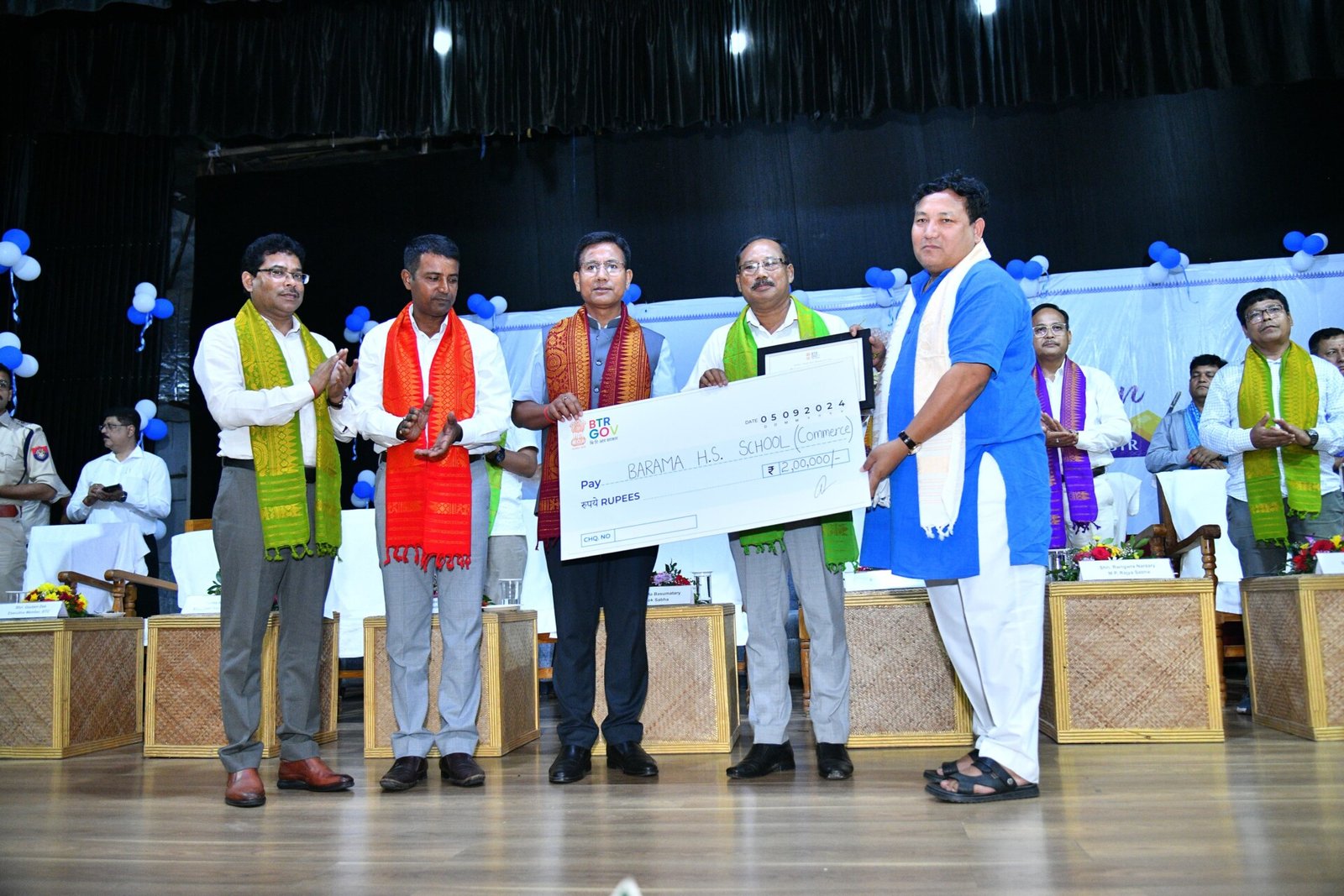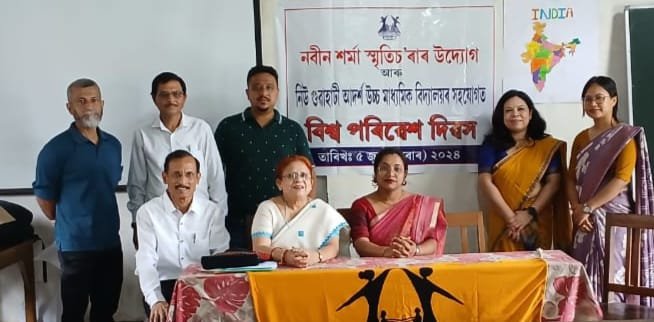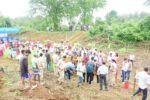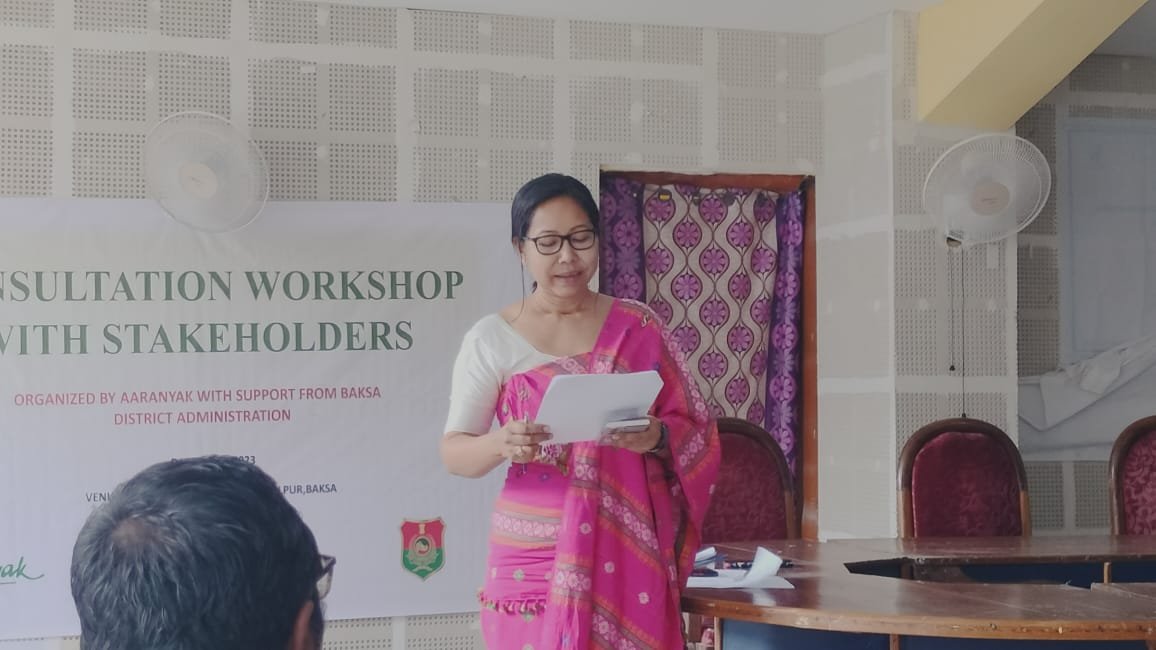HT Bureau
Guwahati, Aug 8: Aiming to instill a deeper understanding of biodiversity among students and teachers, and thereby foster a sense of responsibility for its conservation, premier biodiversity conservation organisation Aaranyak, in collaboration with Samagra Shiksha Assam (SSA) Baksa district, organised a comprehensive teachers’ training workshop on ‘Biodiversity Conservation and Sustainability Education’. The workshop took place on August 3 at Nikashi High School in Baksa district.
During the workshop, Jayanta Kumar Pathak, senior manager at Aaranyak, stated about the importance of employing scientific approaches to address environmental concerns, which include preserving traditional ecological knowledge, mitigating human-elephant conflict (HEC), and safeguarding water sources. Pathak engaged the participants in several interactive activities to illustrate his points.
Pathak underscored the immediate need to conserve the rivers and tributaries of the Bodoland Territorial Region (BTC), which serve as lifelines for numerous communities. He highlighted that the practice of sustainability is deeply ingrained in the indigenous community of BTC, exemplifying their reverence for the Siju tree in Bathou religion. This reverence is rooted in the belief that the tree’s five branches symbolise the sun, earth, air, water, and sky – essential elements for sustaining life on Earth.
Drawing attention to the ecological uniqueness of northeastern India and the New Educational Policy, Pranab Jyoti Kalita, district programme officer of SSA, Baksa district, underscored the expanding roles and responsibilities of teachers. He emphasised the necessity of collaborating with knowledge partners from various fields, and discussed the role of Youth and Eco-Clubs in fostering critical thinking and environmentally-conscious citizens.
Tanvi Hussain, an official from Aaranyak, stressed the significance of integrating sustainability education into school curricula. She highlighted the importance of understanding biodiversity, natural resources, and waste management for sustainable living and livelihoods. Hussain accentuated the importance of documenting traditional knowledge and fusing it with modern science to address resource scarcity and achieve Sustainable Development Goals (SDGs).
Rabiya Daimary, another Aaranyak official, engaged teachers in discussions about human-elephant conflict in Baksa district and the greater BTC region. She spoke about the importance of coexisting with wild elephants and outlined Aaranyak’s initiatives to reduce HEC and minimise damage to lives and property.
Wasima Begum, also from Aaranyak, conducted hands-on activities demonstrating various components of the sustainability education program. These activities included campus biodiversity mapping and species diversity calculations using the quadrat method, providing participants with comprehensive insights into local flora and fauna.
Dr Priyanath Basumatary from SSA, Baksa, and Manna Singh Brahma, principal of Nikashi High School, actively participated and contributed to the successful completion of the program.
Supported by Wipro Earthian and SBI Foundation, the workshop engaged 28 participants, including 22 teachers from 22 schools representing nine clusters in Baksa district.







